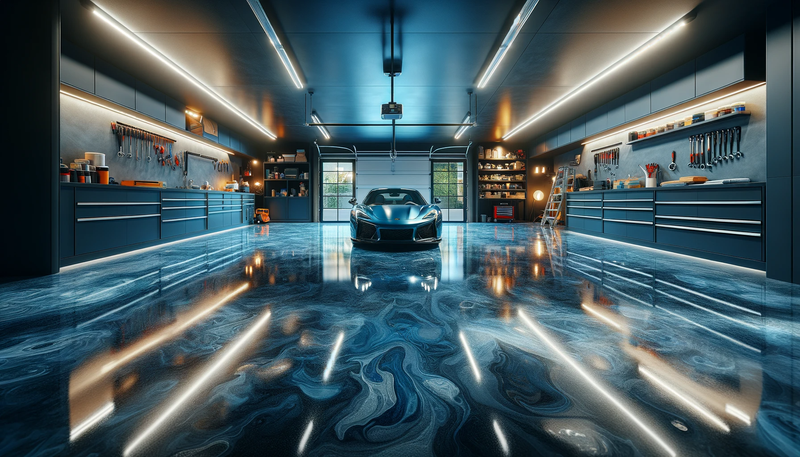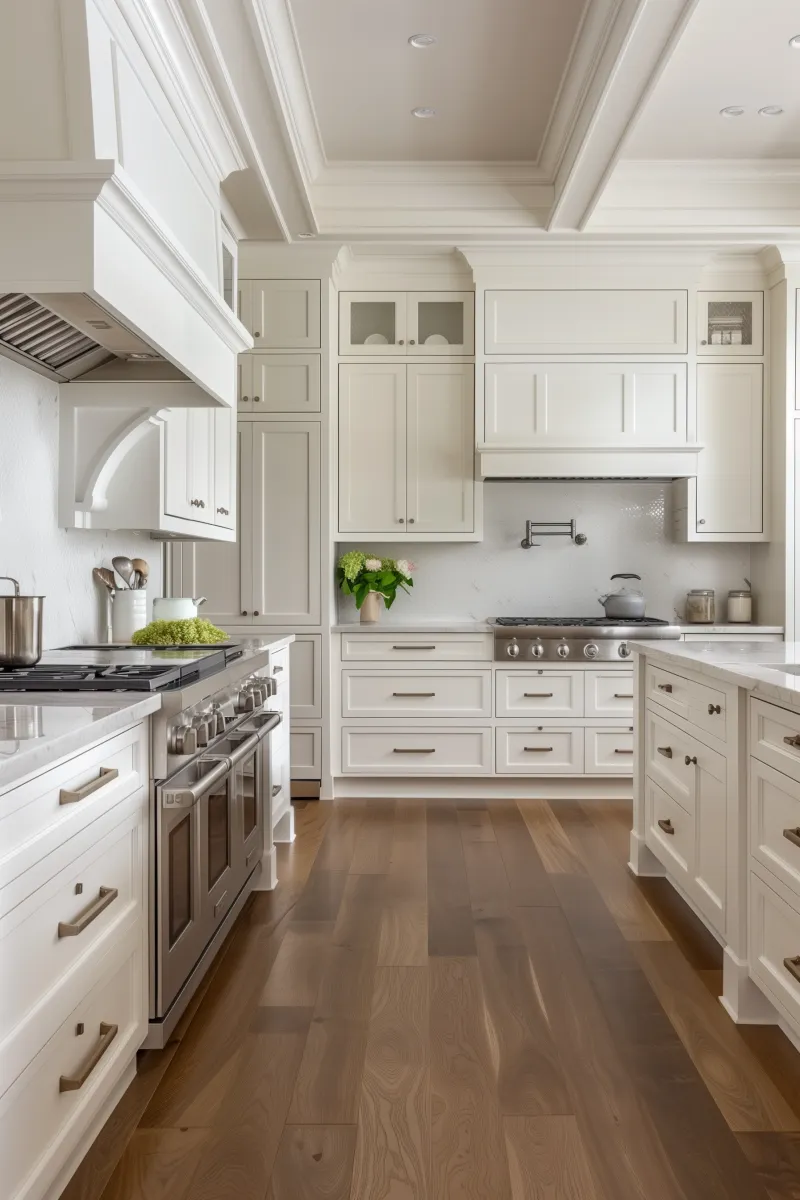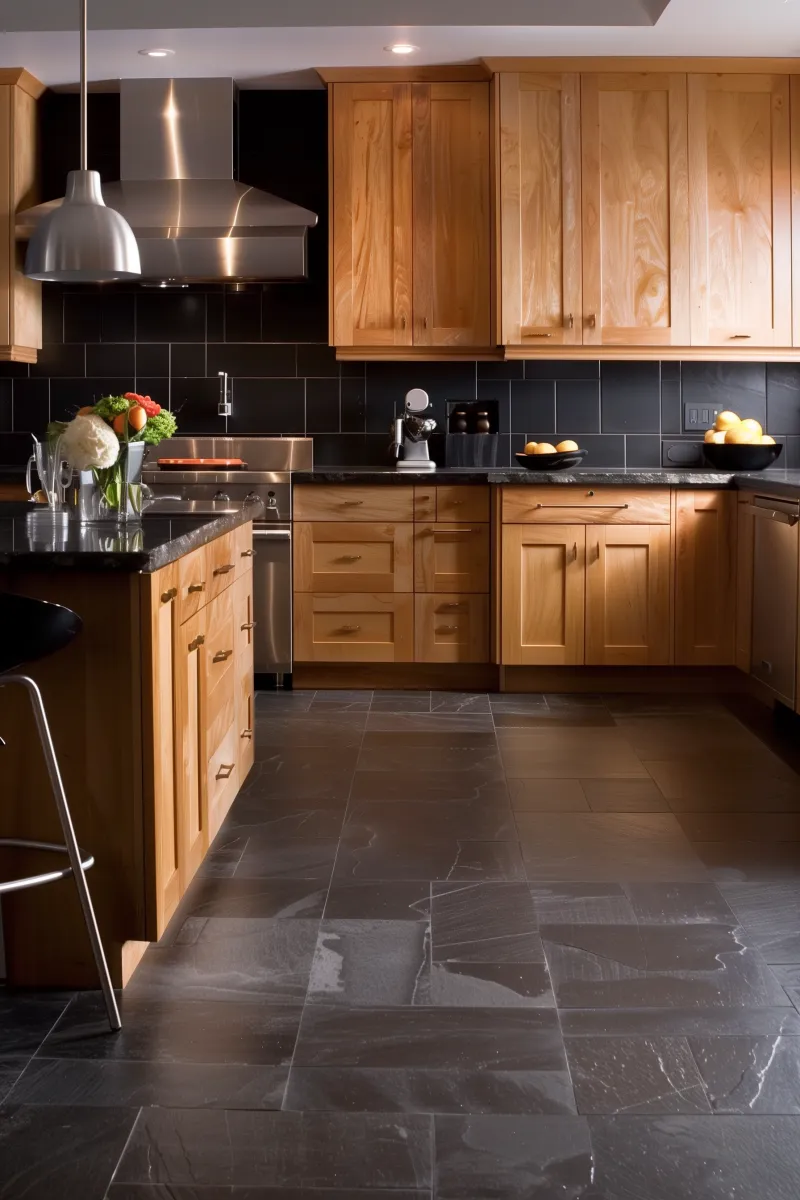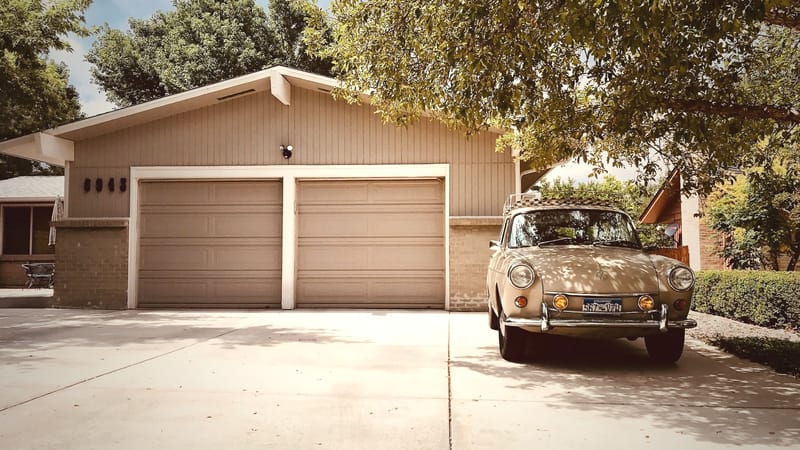Garage floor stain vs epoxy coating is a common question amongst home owners and business owners. When considering flooring options for various spaces, understanding the differences between epoxy floors and stained concrete is essential. Both offer unique advantages and suit different needs.
Garage Floor Stain vs Epoxy Coating - which one is the best choice for you?
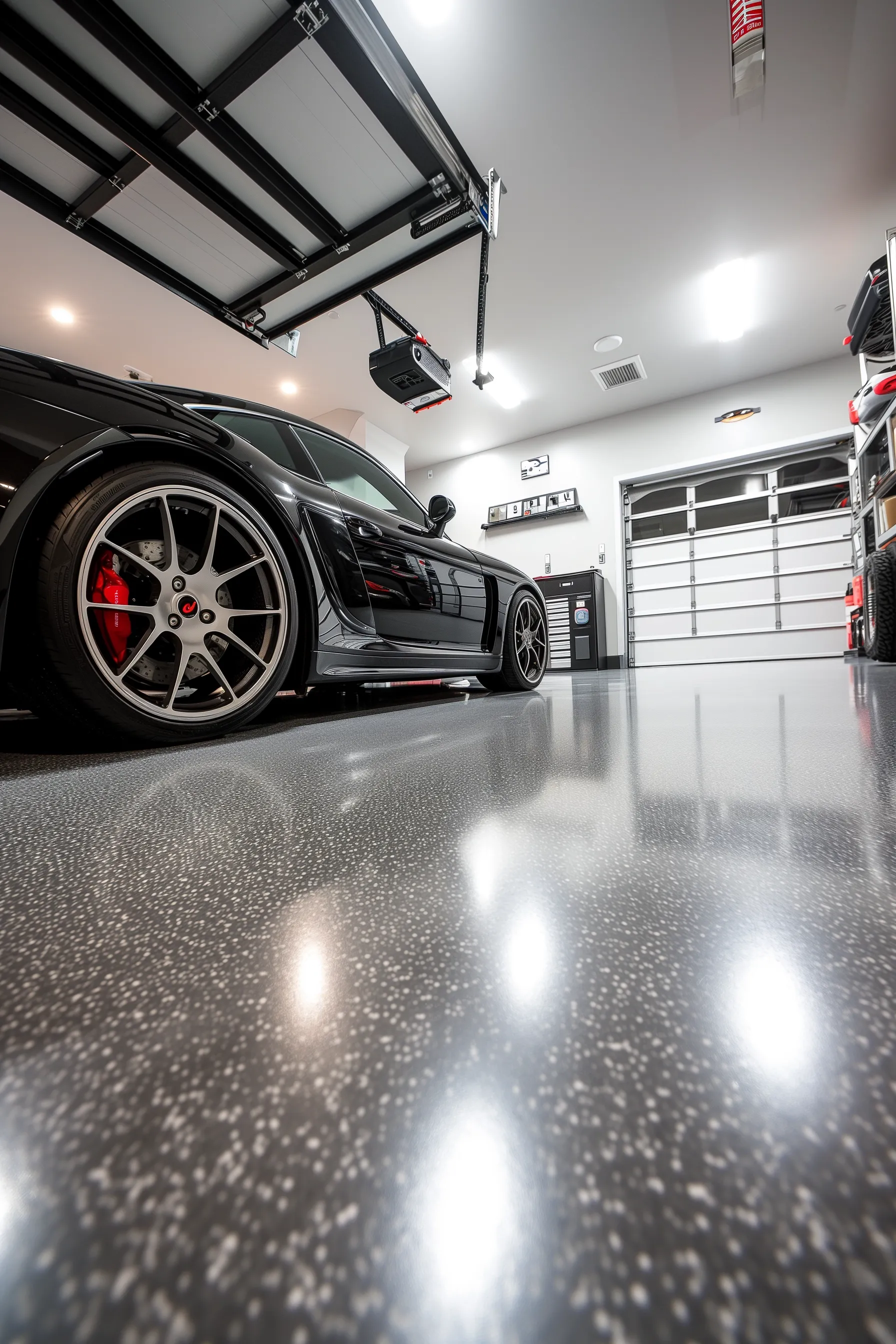
Deciding between epoxy floors and garage concrete stains for your space involves considering several key factors:
- Purpose and Usage: Assess the level of traffic and the type of activities that will take place on the floor. Epoxy is more durable and resistant to heavy machinery and high traffic, making it ideal for garages, warehouses, and commercial kitchens.
- Aesthetic Preferences: If you desire a wide range of colors, patterns, or even 3D effects, epoxy offers more versatility. Stained concrete provides a more natural, earthy look, especially with acid staining.
- Budget: Consider your budget for both the installation and long-term maintenance. Epoxy tends to be more durable and requires less frequent reapplication compared to stained concrete, which might need resealing every few years.
- Maintenance and Cleaning: Evaluate the effort you’re willing to put into maintenance. Both options are stain-resistant and easy to clean, but stained concrete may require resealing to maintain its look and durability.
- Safety Concerns: For areas where slip resistance is a priority, both flooring types can be treated with anti-slip additives. However, epoxy can be inherently more slip-resistant.
- Installation Conditions: Consider the condition of your existing floor. Epoxy can be more forgiving on damaged or uneven surfaces as it can fill in and level out imperfections.
- Environmental Conditions: If the area is exposed to sunlight, epoxy might be more suitable due to its UV resistance. For indoor areas, both options can work well.
- Longevity: Epoxy generally offers a longer lifespan, which could be a deciding factor if you're looking for a long-term solution.
- Health and Safety During Installation: Acid staining requires more safety precautions during installation due to its reactive nature, whereas water-based staining and epoxy are safer and easier to handle.
Now Let's Dive Into Some More Detail:
We are running through garage floor stain vs epoxy flooring in more detail so you can make a better choice!
1. Garage Floor Stain
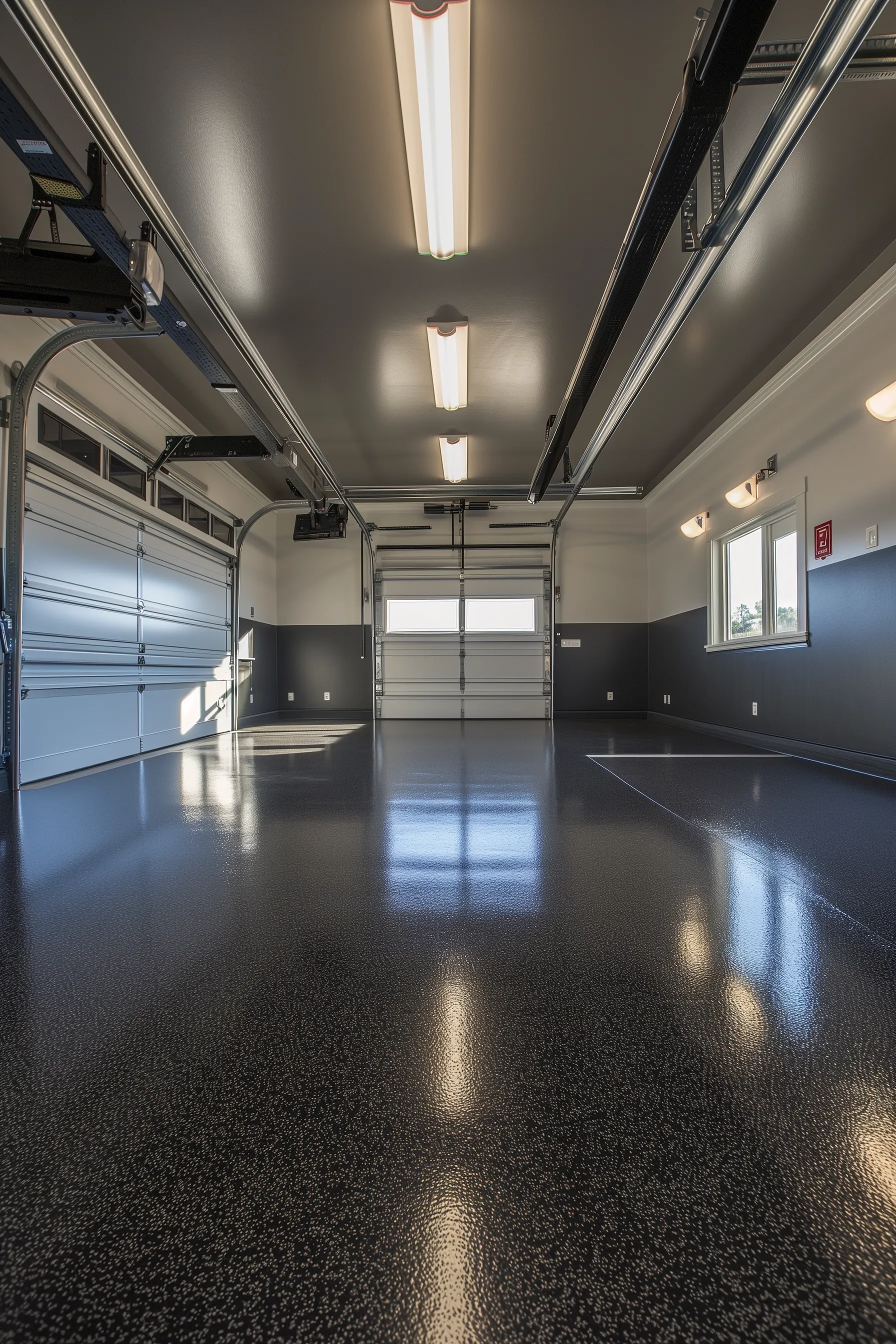
Garage concrete staining is a popular flooring solution, particularly for homeowners looking to enhance the aesthetic appeal of their garage while providing a durable surface.
Unlike paints or coatings, stains penetrate the concrete to provide a rich, translucent finish that highlights the natural character of the concrete.
Stains come in two main types: acid-based and water-based. Acid-based stains react chemically with the concrete to create unique, marbled color effects, while water-based stains offer a broader range of colors and are easier to apply.
Pros of Garage Floor Stains:
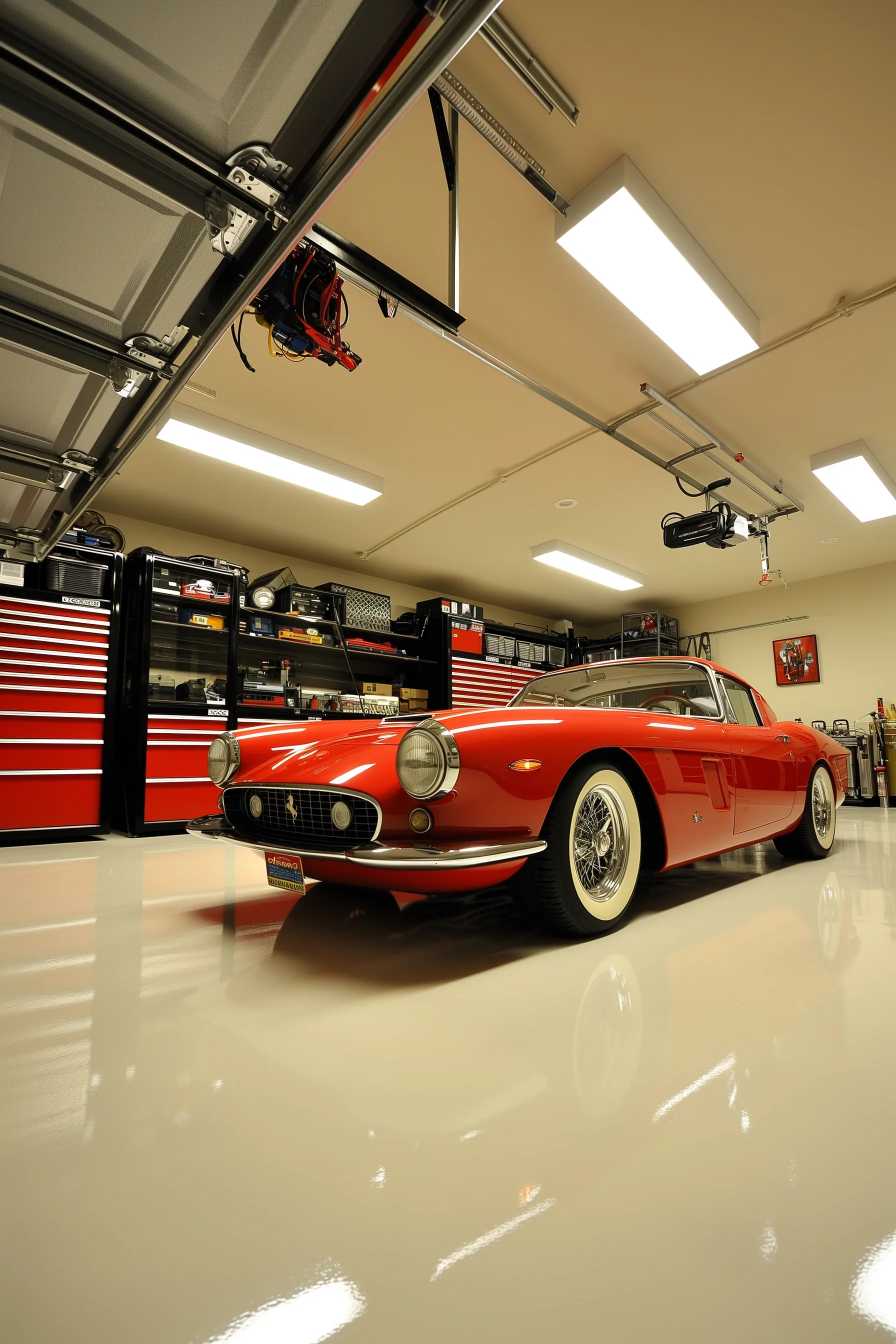
- Aesthetic Appeal: Stains can dramatically improve the look of a garage floor, offering a range of colors and effects. Acid stains, in particular, provide a unique, mottled appearance that can’t be replicated with other types of coatings.
- Durability: When properly sealed, stained concrete floors are resistant to chipping, fading, and peeling. They can withstand heavy foot traffic and the rigors of garage use.
- Low Maintenance: Stained floors are easy to clean and maintain. Regular sweeping and occasional mopping with mild, non-abrasive cleaners are usually sufficient.
- Long-Lasting: The color from a stain, especially an acid-based one, is permanent and will not flake or peel away like paint.
- Cost-Effective: Staining is generally less expensive than installing a new floor or using high-end epoxy coatings.
- Eco-Friendly Options: Water-based stains are low in volatile organic compounds (VOCs) and are a more environmentally friendly option.
Cons of Garage Floor Stains:
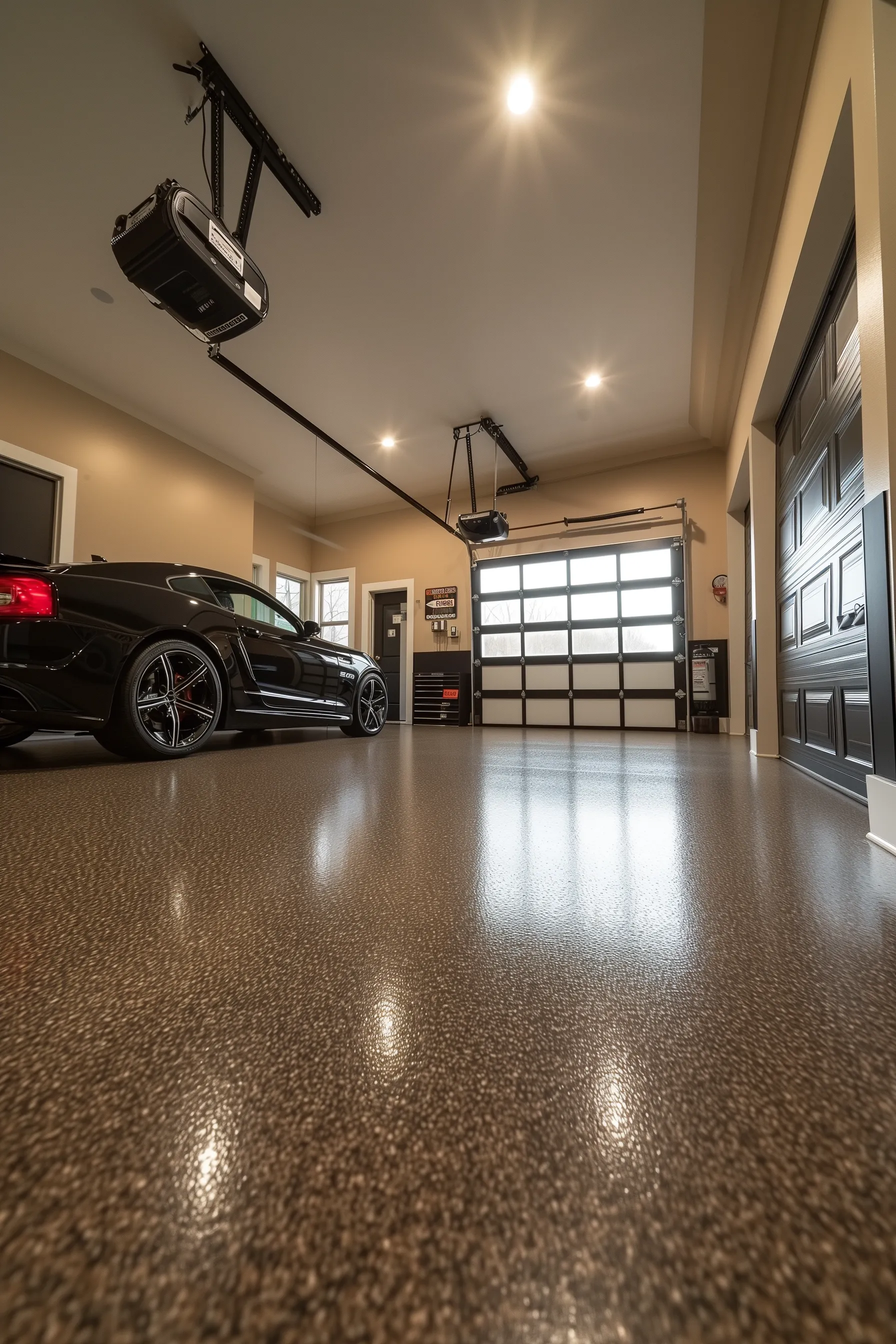
- Complex Application Process: Applying an acid-based stain can be complex and requires special safety precautions due to its corrosive nature.
- Limited Color Selection: Acid-based stains have a limited color palette, mostly limited to earth tones.
- Inconsistent Results: The final look of an acid stain can be unpredictable as it depends on the concrete’s composition and age.
- Preparation Requirements: The concrete surface must be properly prepared and cleaned for the stain to adhere correctly.
- Requires Sealing: To protect the stain and achieve the desired sheen, a protective sealer must be applied, which might need reapplication over time.
- Susceptibility to Damage: While durable, stained floors can still be damaged by harsh chemicals or heavy impacts.
In summary, garage floor stains offer an attractive, durable, and cost-effective way to enhance the appearance of a garage. The choice between acid-based and water-based stains will depend on the desired aesthetic effect and the level of maintenance you are willing to undertake. The right preparation, application, and sealing will ensure a long-lasting and beautiful garage floor.
2. Epoxy Flooring
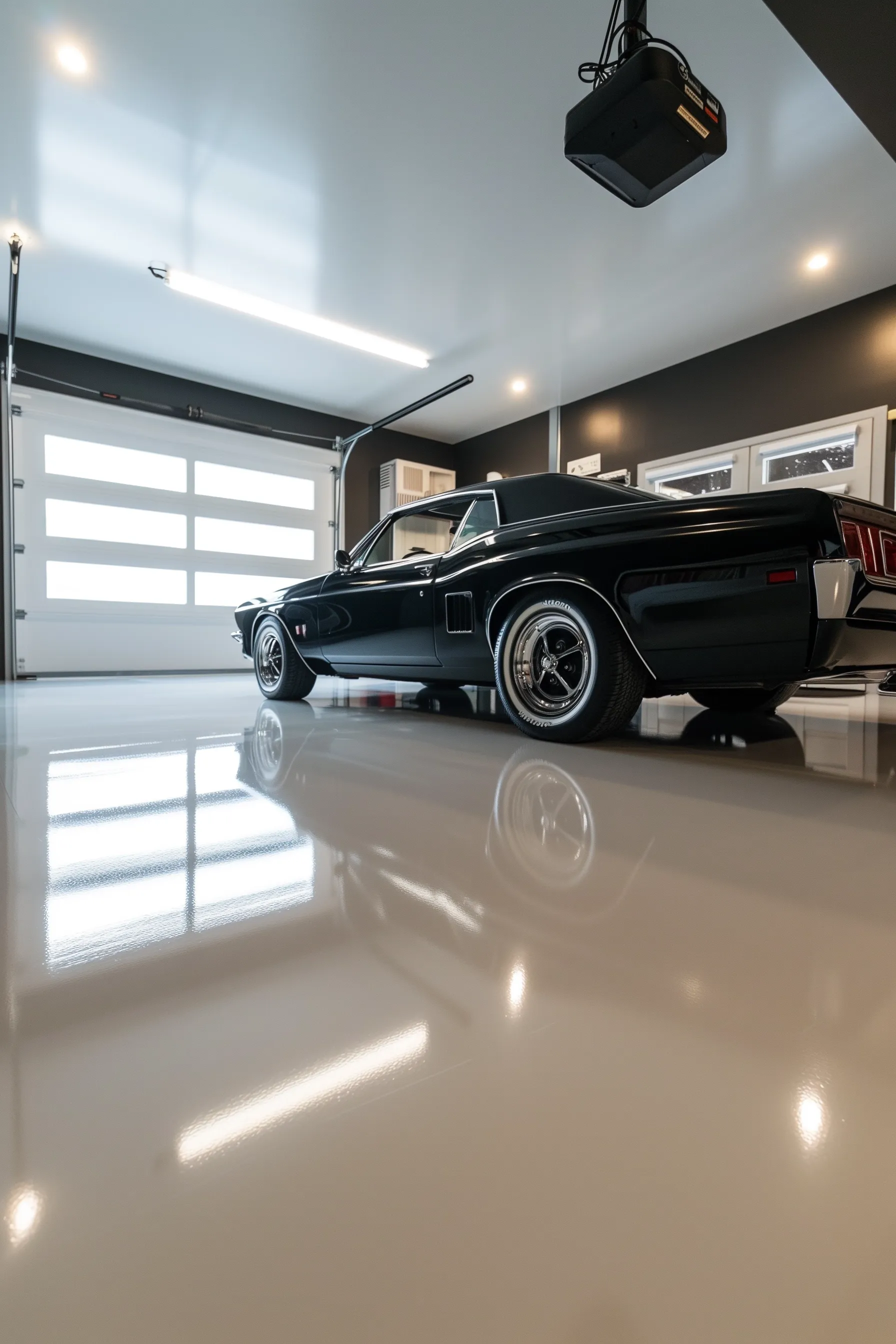
Epoxy flooring is a popular choice for garage floors due to its durability, strength, and aesthetic appeal. It is made by mixing a resin and a hardener, which form a chemical reaction to form a rigid, plastic-like surface. This surface is applied over concrete floors to create a smooth, seamless finish. Epoxy flooring is known for its resilience and ability to withstand heavy traffic, making it ideal for garages that see a lot of use.
This material is known for being impact resistant and its ability to adhere to a variety of surfaces, including concrete surfaces.
Pros of Epoxy Floor Coatings:
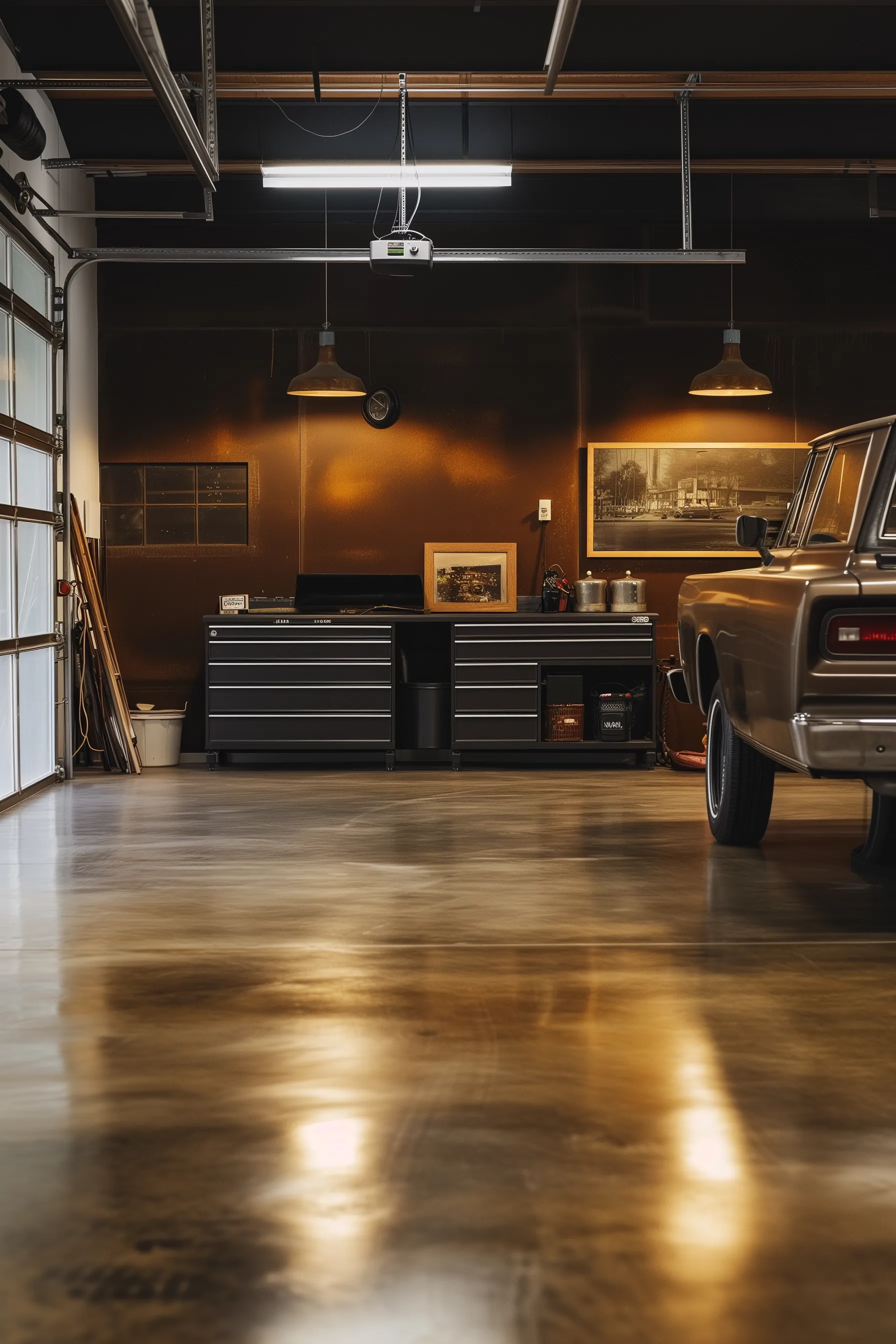
- Durability: Epoxy is extremely durable and resistant to impacts, chemicals, stains, and surface abrasion, making it ideal for garages and other high-traffic areas.
- Aesthetic Variety: Available in a variety of colors and patterns, epoxy paint can be used to create attractive designs on floors. It can also include decorative chips or quartz for added visual interest.
- Resistance to Moisture and Stains: Epoxy is non-porous, which makes it resistant to moisture and easy to clean. Spills and stains can be wiped away without leaving a mark.
- Long Lifespan: When properly installed and maintained, epoxy flooring can last for many years, often decades, without the need for replacement.
- Safety Features: Epoxy can be formulated with anti-slip additives to enhance safety, especially in wet conditions.
- Cost-Effective: In the long run, the durability and low maintenance needs of epoxy make it a cost-effective flooring solution.
Cons of Epoxy Floor Coatings:
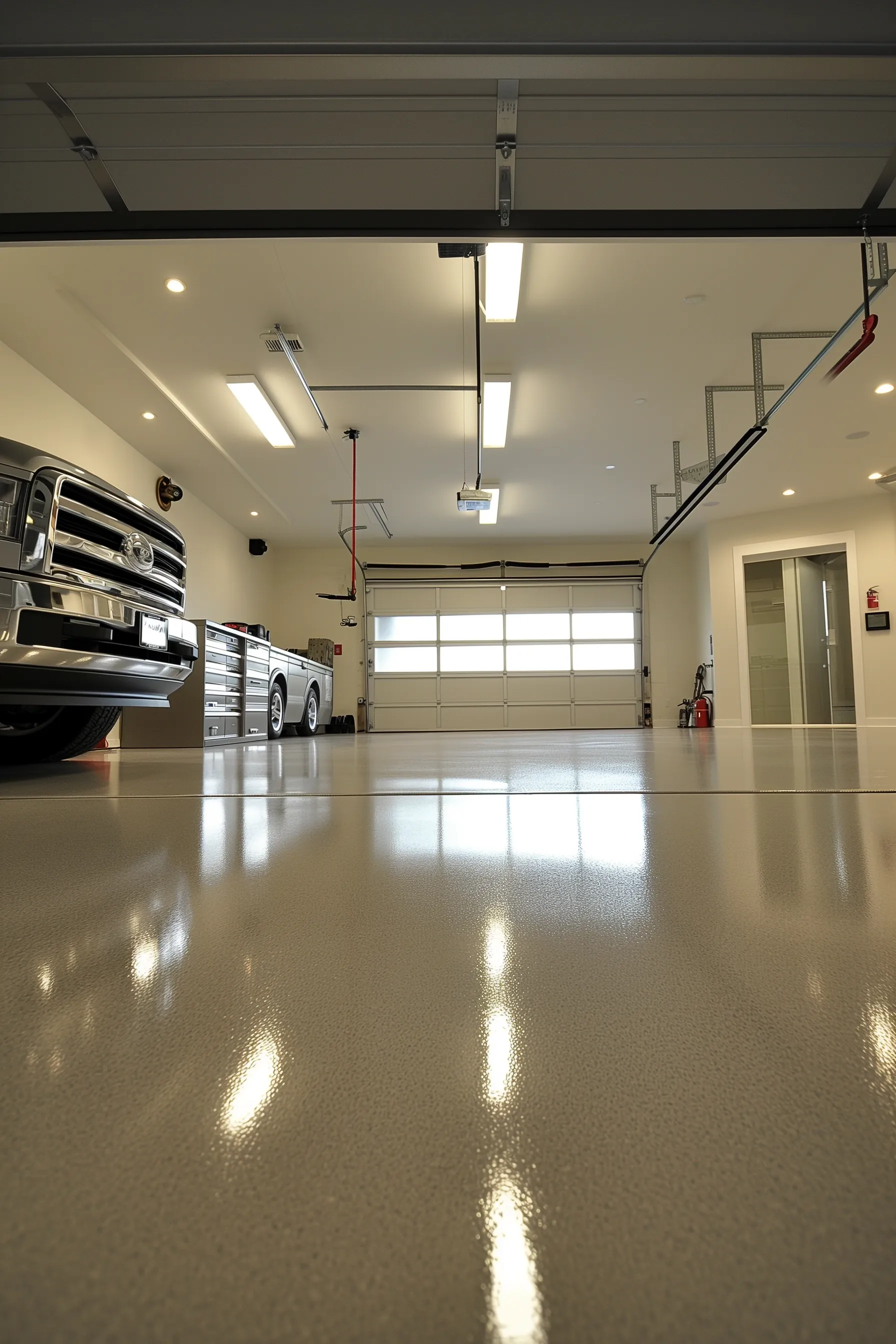
- Preparation and Application Time: Proper installation of epoxy flooring requires significant surface preparation, and the application process can be time-consuming.
- Curing Time: Epoxy takes time to cure fully, during which the garage may be unusable. This curing process can take several days.
- Slippery When Wet: Standard epoxy can be slippery when wet, although this can be mitigated with texturizing additives.
- Sensitive to UV Exposure: Some epoxy types can yellow or fade when exposed to sunlight over time.
- Complex Installation: Professional installation is recommended for best results, as improper mixing and application can lead to poor results.
- VOC Emissions: Some epoxy products emit volatile organic compounds (VOCs) during application, which can be a concern for indoor air quality.
In summary, an epoxy floor coating is a robust, long-lasting, and aesthetically versatile option for garage floors. It's an excellent choice for spaces that require a tough, easy-to-clean, and attractive surface. However, the installation process, curing time, and potential for slipperiness are important considerations when choosing epoxy for your garage.
Comparing Performance and Durability
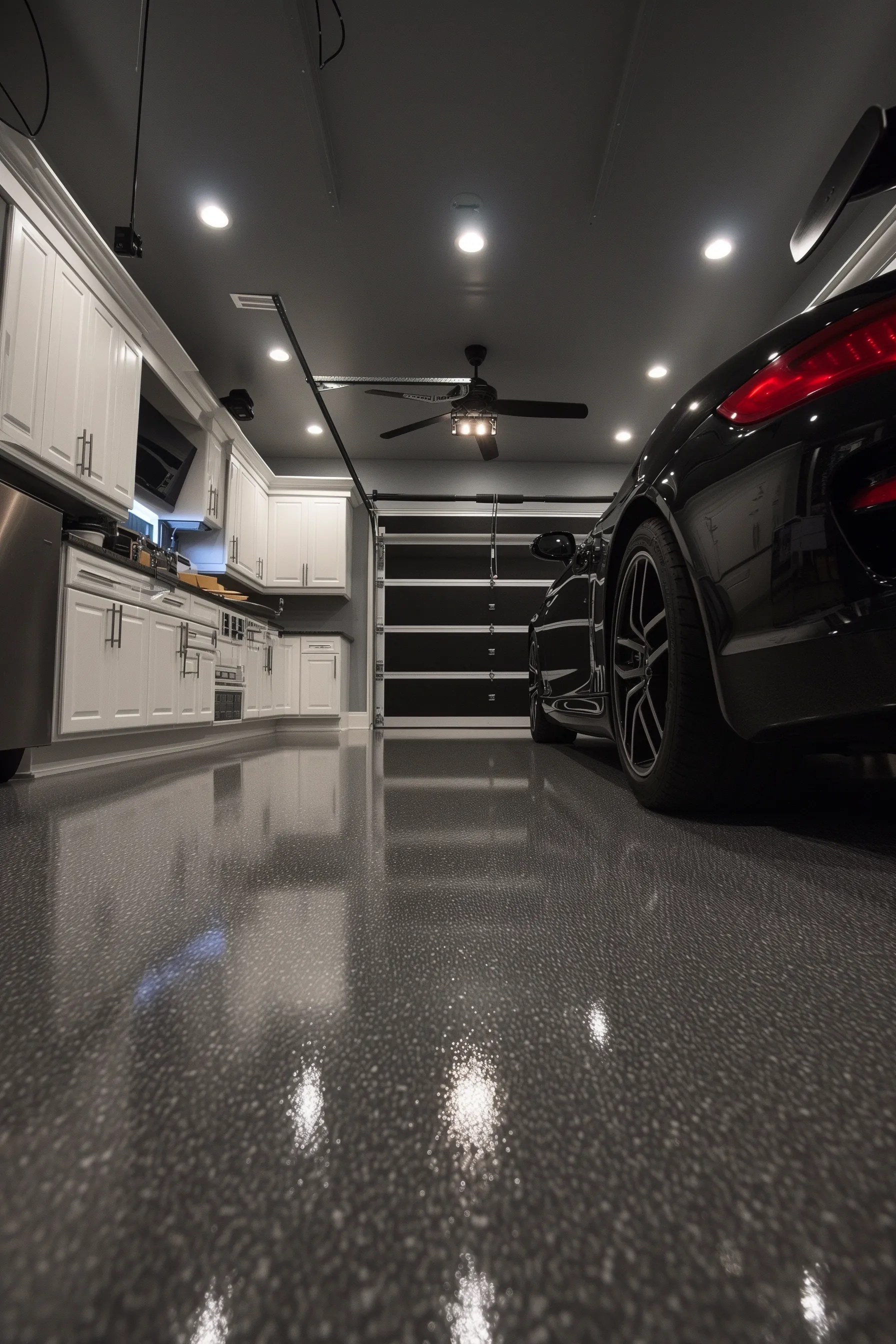
Stain vs Epoxy in High-Traffic Areas
In high-traffic areas, epoxy floor coatings are often the better option. They can withstand heavy foot traffic and the weight of heavy equipment without showing significant wear and tear.
Response to Environmental Factors
Both options respond differently to temperature changes and water damage. While concrete stains can offer some resistance to water damage, epoxy coatings are generally more durable against thermal shock and heavy impacts.
Aesthetic Appeal and Customization
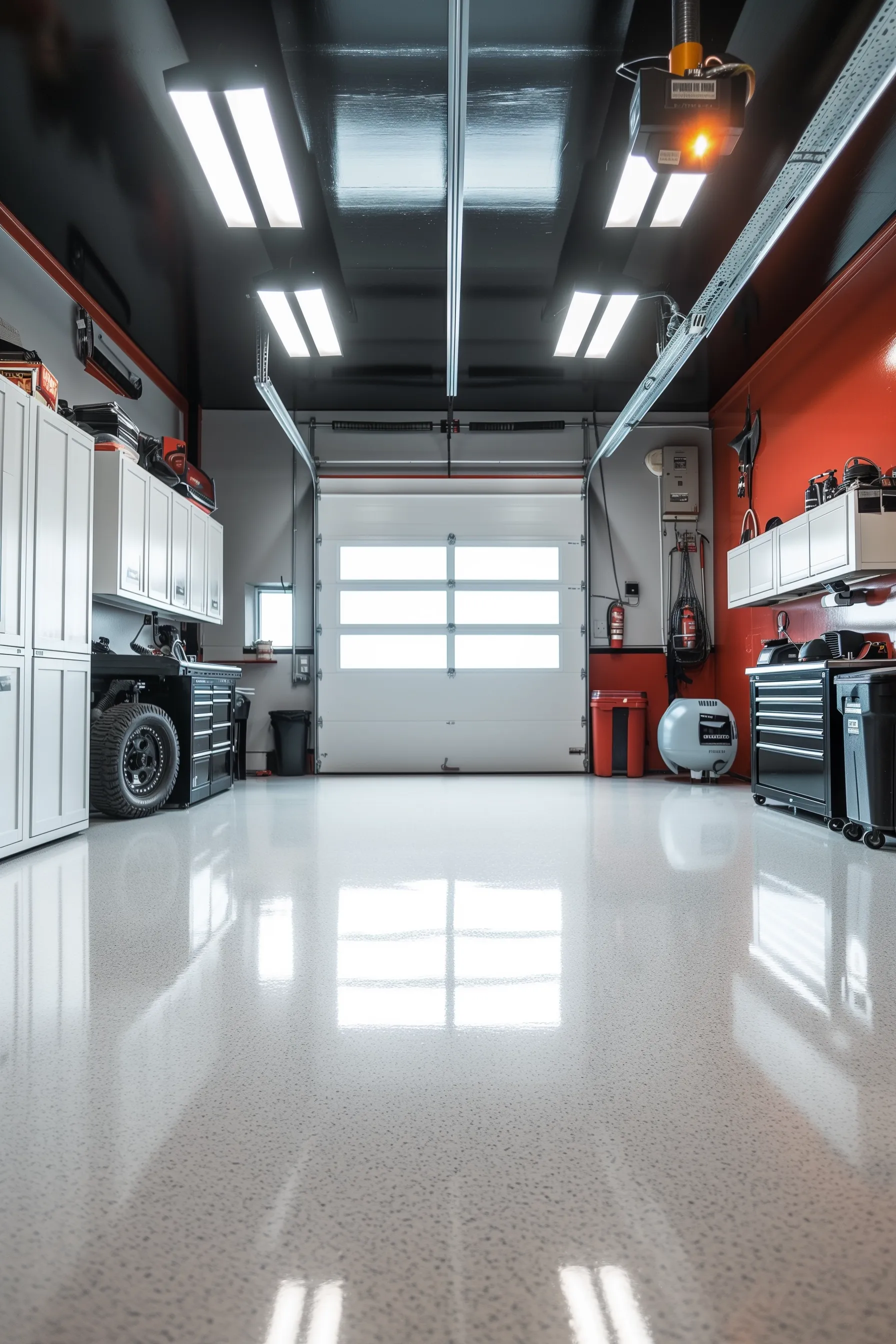
Color and Design Options
Epoxy flooring offers a wide range of colors and can mimic the look of natural stone or even unique designs. Concrete stains, on the other hand, provide a more natural and subtle coloration, which can be an excellent choice for residential properties.
Visual Effects and Finishes
Epoxy coatings can achieve a high-gloss finish that enhances the overall look of the space. Concrete stains, while more subdued, can create a unique, mottled appearance that is visually appealing in its own right.
Application and Maintenance
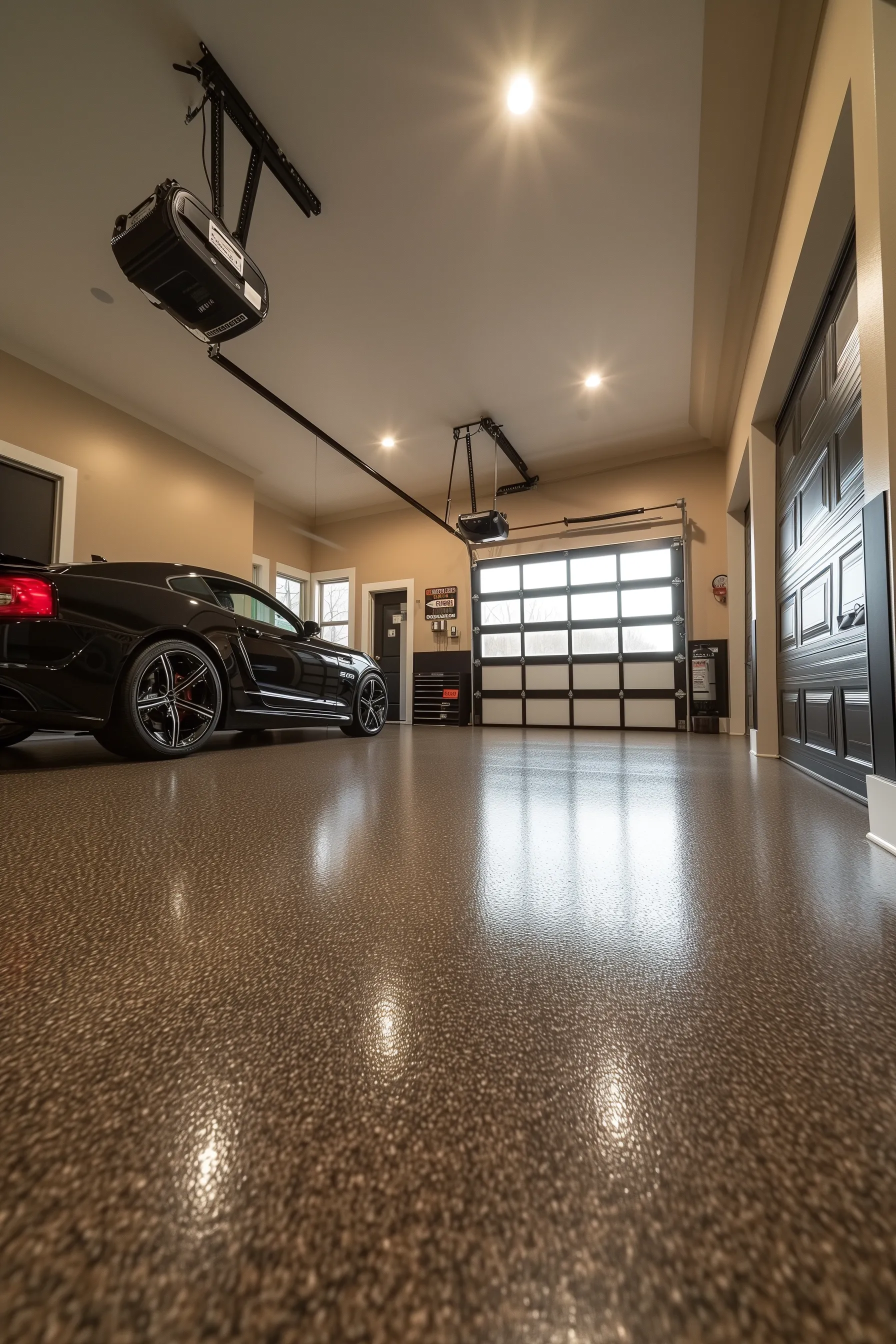
Installation Process
The installation process for epoxy is more involved and usually requires a professional contractor. Concrete staining can be a DIY project, but for best results, especially with acid-based stains, professional application is recommended.
Maintenance and Upkeep
Epoxy floors are easy to clean and maintain, requiring only regular sweeping and mopping. Concrete stains may require reapplication of a sealer over time to maintain their appearance and durability.
Cost Considerations
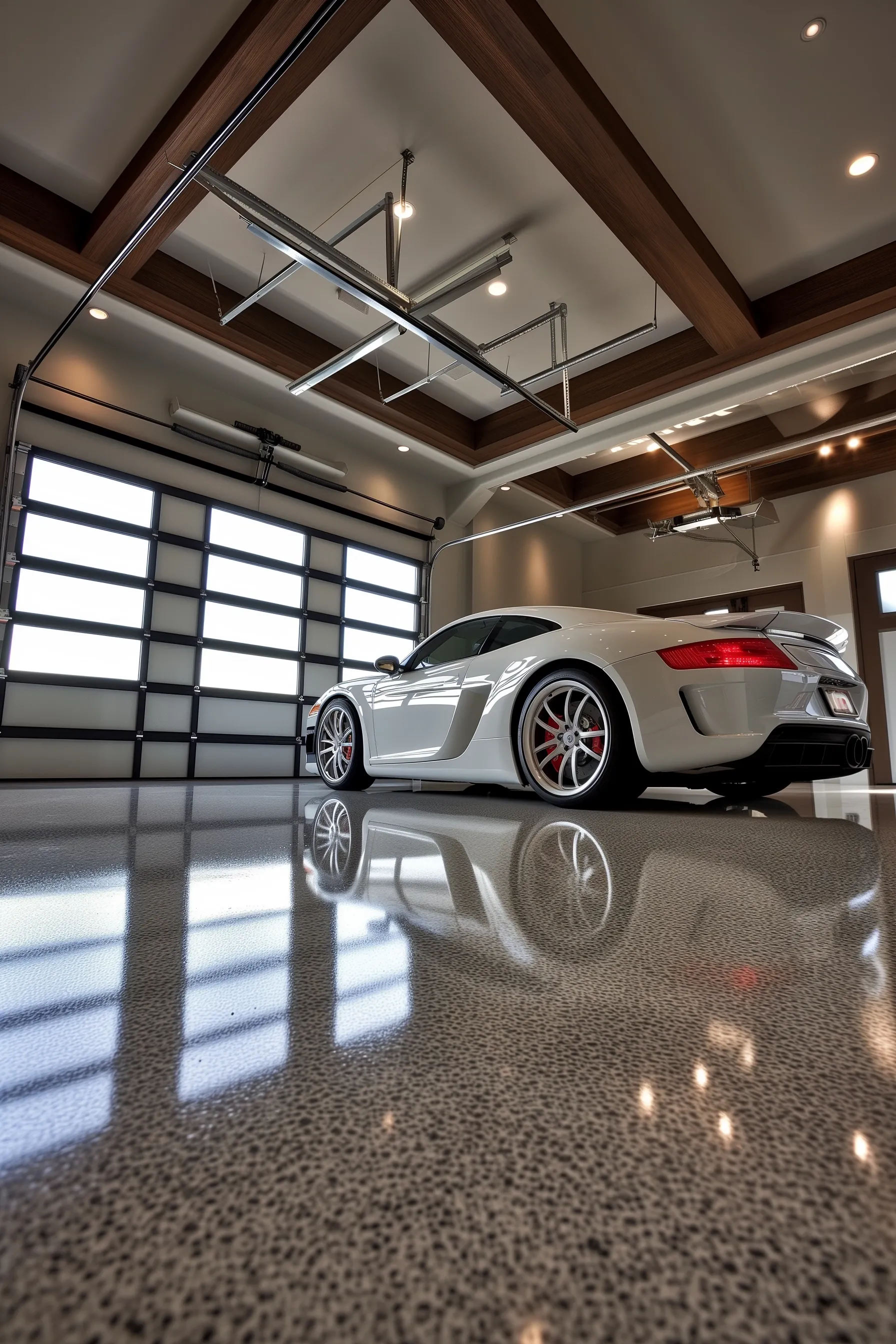
Pricing by Square Foot
Generally, epoxy floor coatings can be more expensive per square foot than concrete stains. However, the long-term durability and low maintenance needs of epoxy can make it a cost-effective solution in the long run.
Total Cost of Ownership
When considering the total cost, it's important to factor in not just the initial installation but also the maintenance and longevity of the flooring solution. Epoxy floors, while more expensive upfront, may offer better value over time.
Environmental Impact
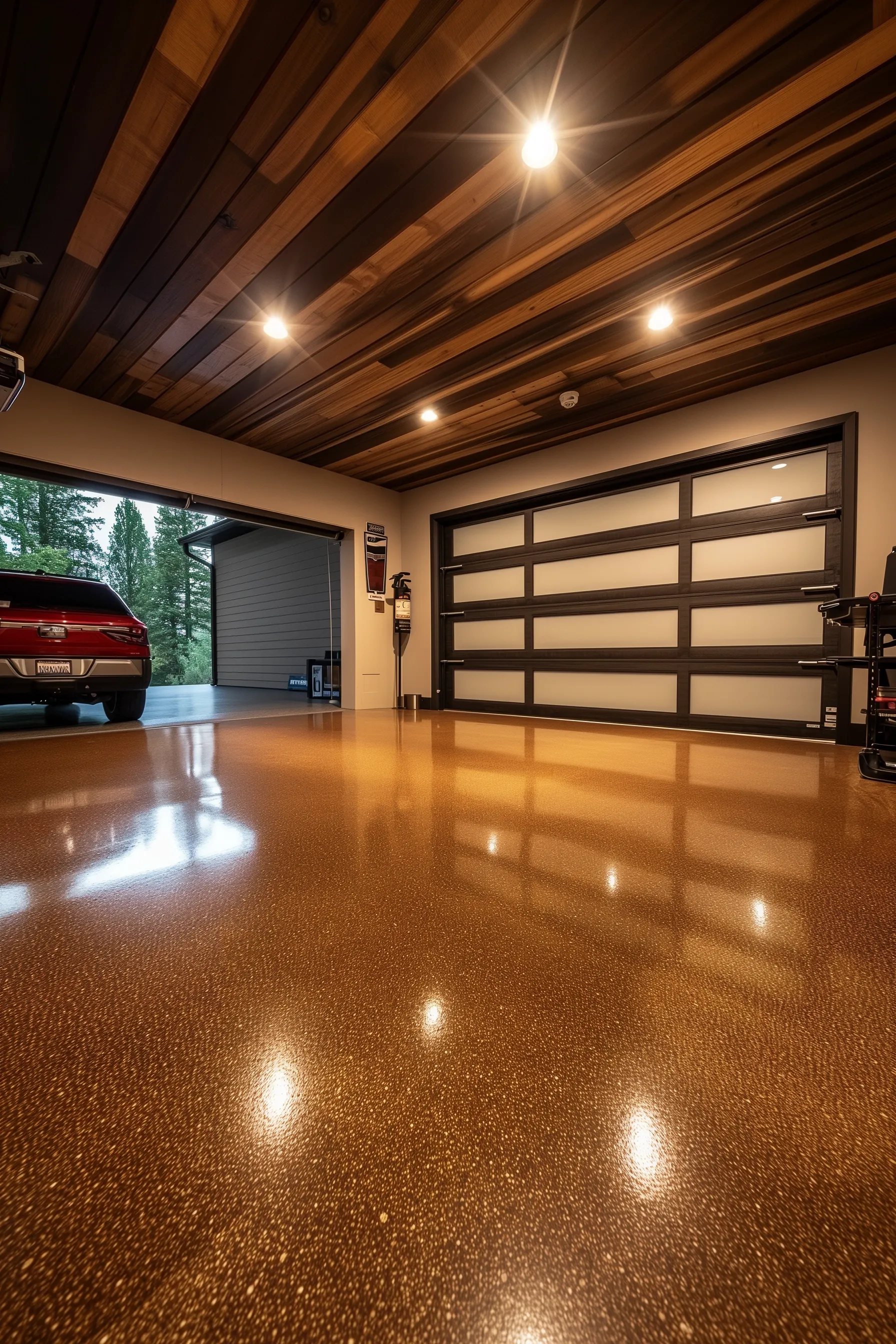
Volatile Organic Compounds (VOCs)
Epoxy coatings often contain VOCs, which can be a concern for indoor air quality. Newer formulations, however, are increasingly focusing on reducing these compounds.
Eco-Friendly Options
For those concerned about environmental impact, water-based concrete stains and low-VOC epoxy formulations are great options to consider.
Making the Right Decision for Your Space

Consider Your Specific Needs
The best choice between garage floor stain and epoxy depends on the specific requirements of your space. For commercial properties with heavy machinery, epoxy is often the clear winner. For residential properties looking for a unique aesthetic, concrete staining could be the perfect choice.
Seeking Professional Advice
It's always a good idea to consult with a professional contractor for a free consultation. They can provide insights into the best flooring solutions for your space, taking into account factors like heavy foot traffic, potential for oil spills, and overall aesthetic preferences.
We hope this garage floor stain vs epoxy coating list has made your decision a little easier!
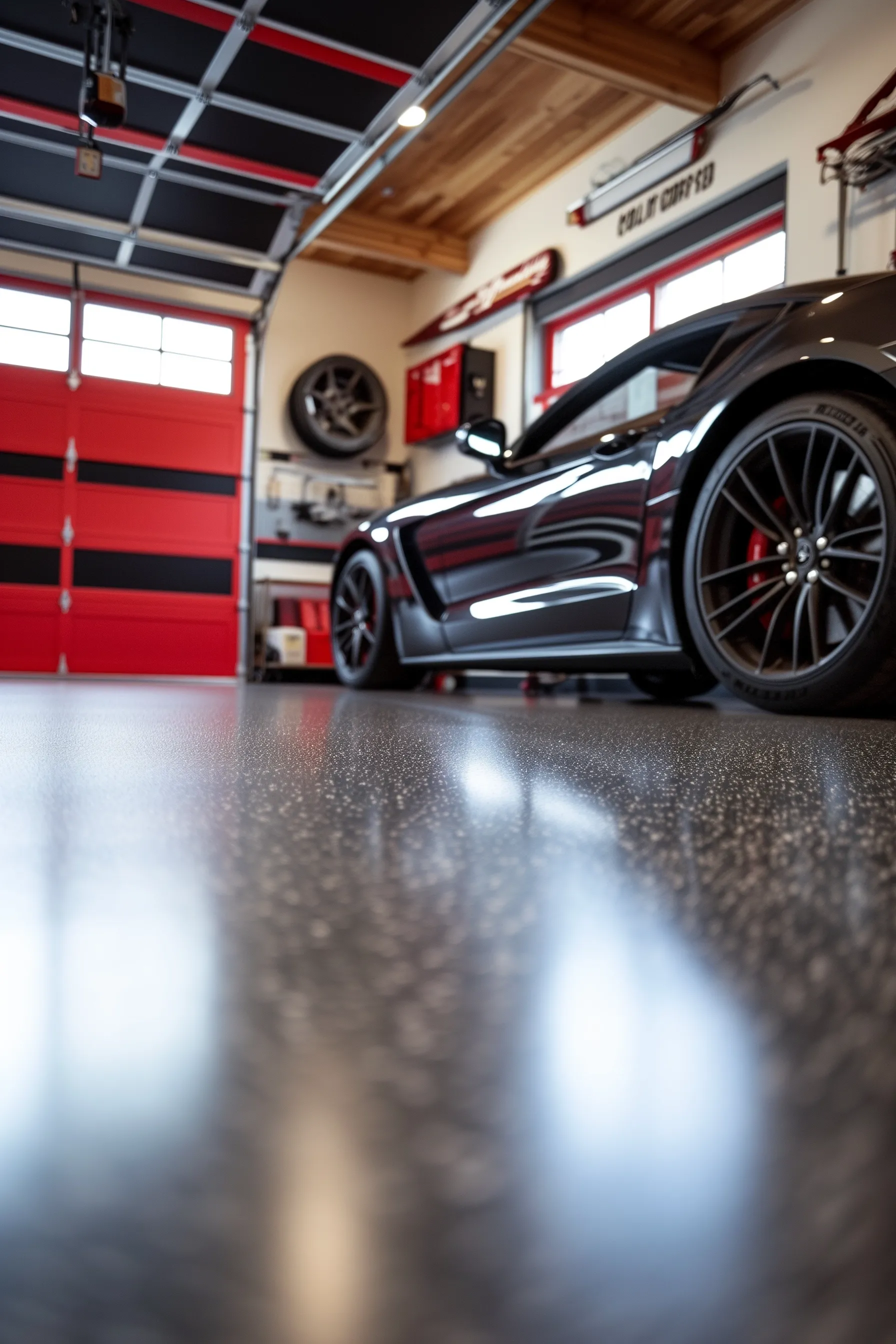
When it comes to choosing the right flooring for your garage, both epoxy flooring and garage floor stains offer unique advantages that cater to different needs and preferences.
Epoxy flooring stands out for its unparalleled durability, resistance to moisture and stains, and a wide range of aesthetic options. It is an ideal choice for those looking for a long-lasting, robust, and visually appealing flooring solution, albeit with a more involved installation process.
On the other hand, garage floor stains, both acid-based and water-based, offer an eco-friendly, cost-effective solution with a natural aesthetic appeal. They are perfect for those who prefer a more organic look with lower installation costs, but require more frequent maintenance and resealing.
Ultimately, the choice between epoxy flooring and garage floor stains depends on your specific requirements regarding durability, maintenance, aesthetics, and budget.
At the end of the day, it's about picking the option that best aligns with your personal preference and the functional needs of your space. Both flooring types have their merits, and the right choice will ensure your garage floor is not only practical but also enhances the overall look and feel of your floor.
This goes into some more detail about polyurea floor coating vs epoxy!

